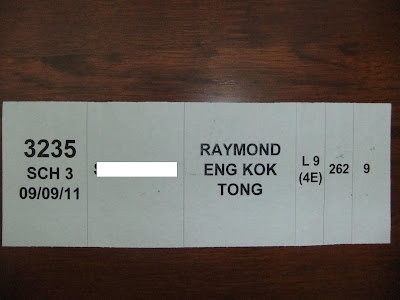The two national law schools take in more than 350 new students each year. Plus those who pursued their law degree overseas, approximately 500 legal professionals get called to the Bar every year.
Less than two months ago, law minister K. Shanmugam announced that a third law school will be set up to train those who are interested in criminal and community law. The mode of study would be part-time and mature students will make up the majority.
While Singapore is undeniably a financial hub, it is still some way from being one for transnational commercial law transactions. Therefore, the idea of having more law graduates who specialize in community law is questionable.
Rather than wealthy clients from the corporate world, students of the third law school will be trained to serve the commoner in the street. Sadly, only those who have a passion for criminal law will take on this tough and arguably unrewarding path.
Rather than solving the issue of the lack of non-commercial lawyers in Singapore, a third law school may end up creating more issues for the legal fraternity and society.
Those who graduated from the third law school may end up not practising criminal law at all. After all, they sat through the same Bar examinations as those from the other two law schools. Seeing their fellow lawyers going on to earn big bucks in the commercial field, they may be tempted to jump ship.
Moreover, the higher salary which commercial lawyers command may prove to be the deciding factor. Those who graduate from the third law school are mature students who have already started their careers. Some might have loans to repay and mortgages to deal with. Hence, working as a commercial lawyer would seem to be a more viable option for them.
Some might view the institution as second-best or less prestigious when compared to the other two law schools. This is because mature students, whose academic performances less glamorous than those who from the other two law schools, make up the majority the student population.
The responsibility of nurturing passionate lawyers who don't mind fighting for the liberty of the ordinary man should be shared among the national law schools. It just doesn't make sense to open another school to increase the supply of a profession that is lacking.
If there were a lack of dentists who specialize in the straighting of teeth, are we going to come up with a new dentistry school that focuses on orthodontics?
The two national law schools are already facing a difficult battle to recruit new lecturers and retain their academics. Unless it employs new methods in its recruitment, the law school will only further strain the supply of law professors in Singapore.
Instead of setting up a new law school, it would be more effective (academically and financially) to alter the curriculum of the existing law schools to include more criminal law subjects.
The deep expertise and years of experience that law professors provide will be adequate to structure a new legal education that is both rigorous and holistic. Students can be given a mandatory option of choosing to specialize in fields like criminal law, family law, probate and mediation.
Pro bono work should also be included as part of the law student's education. It will give them an insight to what it is like working as a community lawyer. Some might, perhaps, develop a passion for it and "cross over" to the less glittering side of the legal profession.
Given the corporate nature of their work and the lack of knowledge in non-commercial legal issues, many commercial lawyers are unable to make the switch even if they have an interest to do so. By exposing new students to more non-commercial law subjects during their time in school, it will allow them to take on more roles in the future as a legal practitioner.
Many claim that criminal lawyers are overworked and worst, underpaid. But the important thing here is not about the money, it is the passion. The passion to save a man's life or prove his innocence. That is, in fact, much more noble than dealing with the biggest commercial law transaction in the world.




No comments:
Post a Comment